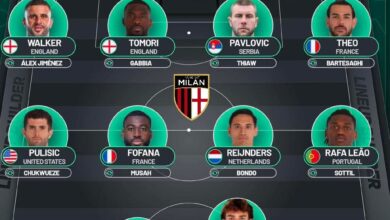Zlatan Ibrahimović, known for his dominant personality and outspoken nature, recently shared his frustration regarding AC Milan’s performance and management, sparking widespread reactions in the football world. In his comments, he criticized the team for lacking the hunger to win and the discipline required to be competitive, attributing the team’s lackluster attitude to weak leadership both on the field and from the coaching bench. According to Ibrahimović, Milan now plays “as if winning isn’t important,” a significant shift from the intense, winning-focused culture he helped instill during his time as a player (Football Italia, SempreMilan).

One of Ibrahimović’s main points of criticism was directed at the head coach, Paulo Fonseca, who took over at the start of the season but has struggled to secure consistent results. Fonseca’s tenure began with only one win in five games, including a heavy 3-1 loss to Liverpool in the Champions League. For a team with Milan’s ambitions, these results have fallen far below expectations, and Ibrahimović believes that Fonseca lacks the tactical expertise and command required to elevate Milan’s performance. Ibrahimović’s criticism even hinted at a lack of synergy between Fonseca and the squad, suggesting that the team’s morale and cohesion have suffered without his influence on the field as a leader (Football Italia).

Ibrahimović’s strong words reflect the frustration of a player who, even in retirement, continues to hold a powerful influence at Milan. In his role as an advisor, he has been vocal and hands-on, reportedly even holding meetings with players in Fonseca’s absence. This unconventional involvement has reportedly created tension between him and the coaching staff, with some sources indicating that Fonseca feels undermined by Ibrahimović’s outspoken leadership style. Ibrahimović’s approach has been to take charge and inspire players through direct communication, yet this has blurred the boundaries between his advisory role and the authority of the coaching staff, potentially destabilizing the team’s dynamic and challenging Fonseca’s authority 
Moreover, Ibrahimović’s presence has highlighted Milan’s leadership void since his departure from the squad. As a player, his charisma and high standards drove Milan to success, but with his transition to an advisory role, the team appears to struggle to find a similar driving force on the pitch. Without him, Milan has seemingly lost its edge, and the lack of a vocal leader among the players has been a noticeable gap. Ibrahimović’s criticisms may thus reflect his desire to see someone else step up as a strong leader to push the team forward, filling the void he left both on and off the pitch.

The reactions to Ibrahimović’s statements have been mixed, with some fans and analysts appreciating his commitment to high standards, while others see his involvement as disruptive. His criticisms of Fonseca’s tactics and approach have sparked discussions about the coach’s future, particularly as Milan’s results continue to lag behind expectations. As the team navigates this turbulent period, it remains to be seen whether Ibrahimović’s tough love will lead to a shift in mentality or deepen the tensions within the club’s hierarchy.
In sum, Ibrahimović’s comments reflect his enduring passion for Milan and a deep-seated frustration with the team’s current state. His critique of Fonseca’s leadership underscores a demand for higher standards, a quality he brought as a player and now seems to demand from the sidelines. However, the impact of his words on the team’s morale and unity will be crucial as Milan aims to reclaim its competitive edge. Whether Ibrahimović’s influence ultimately benefits the team or disrupts the current structure is a question that only time—and perhaps a few more wins—will answer (Football Italia, SempreMilan, Gazzetta dello Sport).






